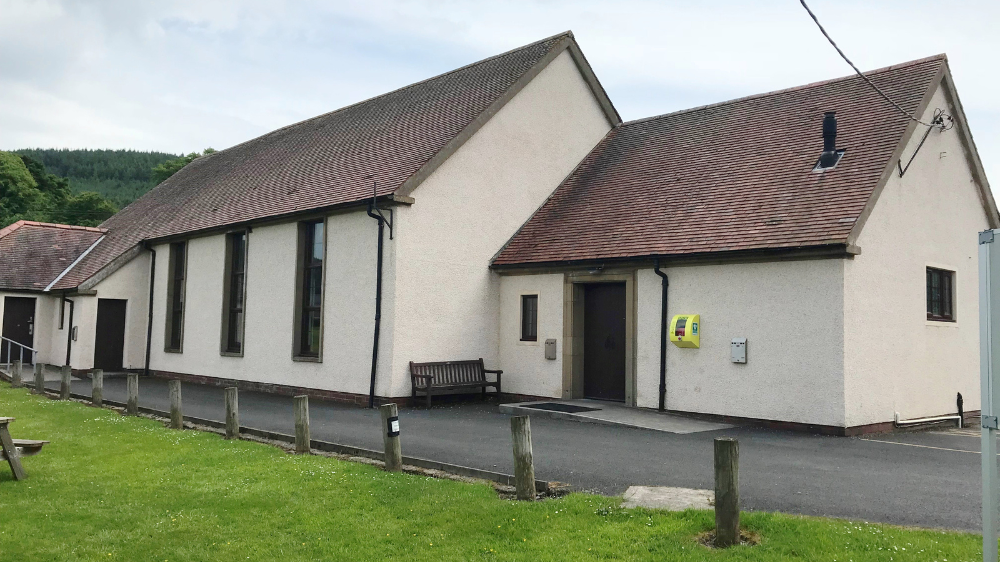How village halls can become more sustainable and save energy with an online booking system
19 March 2024
Bernard Hammick, Managing Director of Hallmaster, provides a guest blog for #VillageHallsWeek on the difference their online booking system can make to venues’ sustainability and environmental footprint
At Hallmaster, we believe that village halls are at the heart of the community. These rural community venues bring people together through events, workshops, classes and much more. They create a rich environment across every generation and were at the forefront of why we developed Hallmaster and are fundamental to its success.
Some 12 years ago when researching for an online booking system to help venues maximise their hiring potential, I found nothing that suited the specific needs of village halls that volunteers could easily use. Traditional methods of managing venues using paper diaries and spreadsheets meant bookings and revenues could easily go missing or be incorrectly recorded. But I knew that for venues to remain viable, they needed to be efficient and accurate when engaging users, in order to grow their customer base. That’s where Hallmaster came in.
Since these early days of the company, Hallmaster has helped over 2,000 community venues improve the way they manage their bookings, in turn making them more financially sustainable.
The fact it has become the go to application is in part to do with the countryside becoming better served by broadband connections which has enabled these venues to make use of digital solutions. But I’d like to think it’s also because we’ve built Hallmaster so that it’s easy to use. There’s no software to download and multiple administrators can be set up, meaning that if the bookings officer is away, someone else can carry on the day to day running of the venue from their computer or phone.
At the heart of the Hallmaster application is a ‘real-time’ calendar displaying the availability of rooms for hire, which can be integrated into halls’ existing websites, and from which people can easily make a booking request. From the perspective of the management committee, the system sends an email notification of the booking to nominated persons. So, no more ‘little black books’ that only one person can keep up to date which can lead to double bookings. It also saves their time.

Village hall clients also tell us they like the way the application can send invoices and take payment from groups that have made a booking, either singularly or for multiple bookings over a longer period. Hire charges can be set at different rates depending on whether they’re local or regular hirers and which room they use. Invoices can also be imported into other accounting systems such as Quickbooks, Sage or Xero, again saving the people running the hall hours of time.
We continue to develop Hallmaster, and one of the most exciting new features is the ability to link smart heating controls to the calendar of bookings.
Traquair Village Hall in Scotland is one such community building that’s appreciated this additional functionality. Having gained a reliable internet connection in 2021, they sought out a smart heating control as their traditional wired thermostat was being overridden by groups either adjusting the thermostat right down, causing the heating not to come on for the next hirer, or turning it right up resulting in expensive fuel bills.


Because Traquair were already using Hallmaster, they have been able to feed their calendar of room bookings into their chosen smart heating control, allowing members of the management committee to remotely configure settings throughout the week according to when the building is in use.
Bernard Hammick, Managing Director of Hallmaster
Because Traquair were already using Hallmaster, they have been able to feed their calendar of room bookings into their chosen smart heating control, allowing members of the management committee to remotely configure settings throughout the week according to when the building is in use. This has been especially useful for more active bookings such as Tai-Chi or dog training for which a lower temperature has been set. The hot water heaters in the toilets have also been set to only work when the building is in use, negating worries about taps being left on. Overall, these simple changes have helped the hall to better manage their energy bills and users have commented that the building is much more comfortable. Furthermore, the integration has inspired the hall to consider other solutions for reducing their carbon footprint and plans are afoot to replace their oil boiler with new air to air heat pumps.
It’s stories like that of Tranquair’s that fill me with optimism about the future for village halls. By continuing to innovate, and making best use of solutions such as Hallmaster, they will continue to go from strength to strength – becoming more financially robust but also becoming leading examples in the journey to Net Zero. Our commitment to this work is established through our relationship to working with ACRE over the last 10 years.
Please get in touch with us to find out what Hallmaster can do for you!
Further information
This sponsored blog was prepared by Hallmaster for ACRE in connection with #VillageHallsWeek, a week-long campaign shining a spotlight on the contribution England’s 10,000+ village halls make to rural communities.
It has been really useful to see the temperature within the hall, be able to see if a hirer makes any adjustments and update the temperature on their booking, and see how long the boiler is running for.
Mark Phelan, Traquair Village Hall



